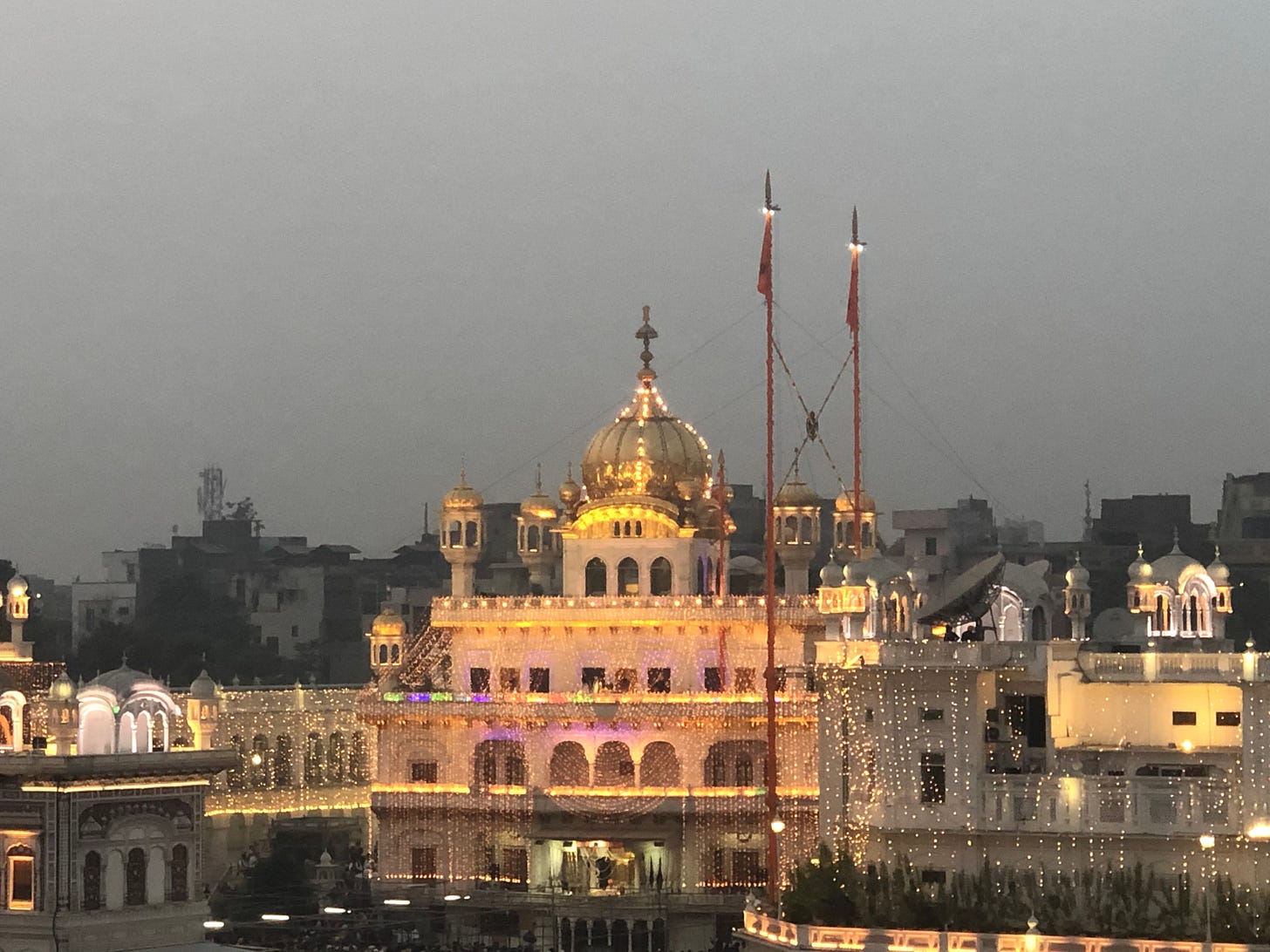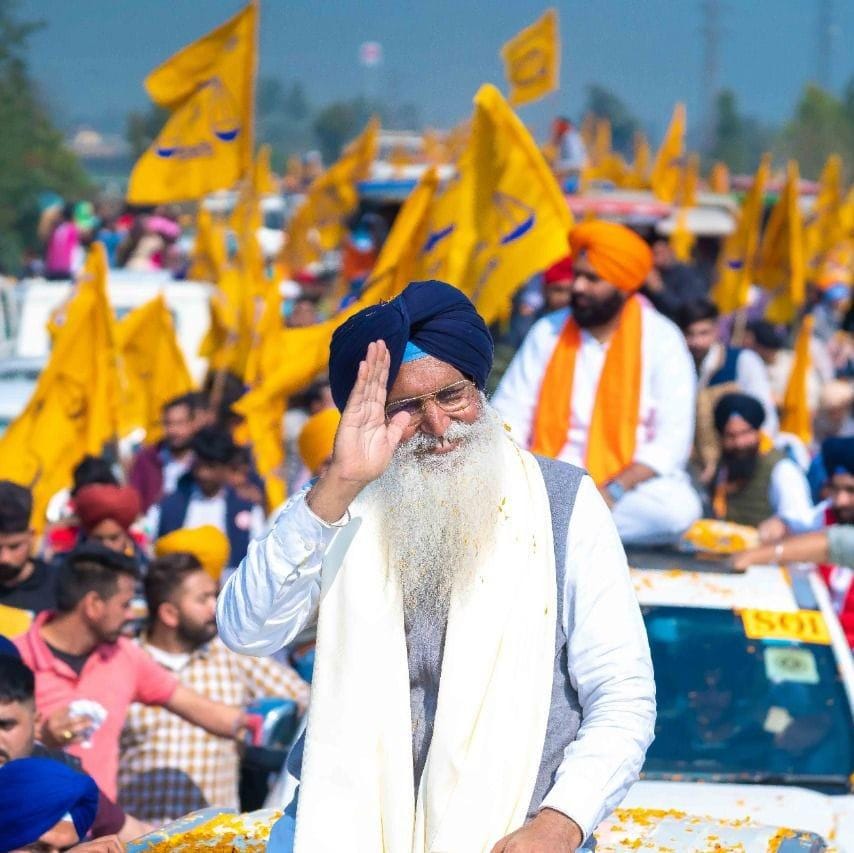The Controversy Surrounding ex-MLA Virsa Singh Valtoha Qua the Akal Takht: A Cautionary Tale
This episode underscores the need for political actors to remain respectful of religious boundaries, recognising the Akal Takht's supremacy in guiding the Sikh community.
Virsa Singh Valtoha’s Avoidable Remarks: A Cautionary Tale
The recent controversy sparked by the avoidable remarks of ex-MLA Virsa Singh Valtoha has shaken the Shiromani Akali Dal (SAD) and raised critical questions about the sanctity of Sikh religious institutions. Valtoha’s irresponsible actions ignited an unnecessary debate over the autonomy of the Akal Takht and raised concerns about potential political interference. This incident, now in the spotlight, offers a revealing look at the delicate balance between religious authority and political influence, with significant implications for the Sikh community, not only in India but also abroad.
The following chronology of events provide a clear picture of the situation and its broader implications for the Sikh community1.
Events Leading to the Controversy
Public Criticism Over Delay in Sukhbir Singh Badal's Punishment
The controversy began when Virsa Singh Valtoha publicly questioned the delay in the Akal Takht's announcement of religious punishment (tankhah) for SAD president Sukhbir Singh Badal. This followed Badal being declared 'tankhaiya' (guilty of religious misconduct) by the Akal Takht in August 2024, a ruling related to his controversial actions during his tenure as Punjab's Deputy Chief Minister. Valtoha's social media posts expressed frustration over the delay, causing ripples within the SAD.
Allegations of External Influence
Valtoha's critique did not stop at the delay. He escalated the matter by alleging that various external forces, including the Union government, BJP, RSS, and overseas Sikhs, were pressuring Sikh jathedars to influence the decision on Sukhbir Badal’s punishment. These claims heightened tensions, as accusations of external influence over religious decisions are highly sensitive within the Sikh community.
Direct Challenge to the Akal Takht's Authority
By suggesting that the Akal Takht Jathedar, Giani Raghbir Singh, was acting under external influence, Valtoha indirectly cast doubt on the independence of the highest seat of Sikh authority, questioning its vulnerability to external pressures and influence. His allegations seemed to challenge the long-standing sanctity of the Akal Takht, which has historically been viewed as immune to political manipulation. This provoked widespread criticism and led to intensified scrutiny of his actions.
Summons by the Akal Takht
In response to these allegations, the Akal Takht summoned Valtoha to to appear before it in person and also present evidence supporting his claims. This marked a significant escalation of the issue, as Valtoha’s accusations now had to be addressed in the realm of Sikh religious authority. His failure to substantiate the allegations led to further consequences, even as he tendered an unqualified apology.
Expulsion Order and Voluntary Exit
The Akal Takht's Singh Sahiban issued a directive for the working President of the SAD to expel Valtoha for a period of ten years. This severe punishment reflected the seriousness of the character assassination against the highest Sikh clergy. Before the expulsion could be formalised, however, Valtoha voluntarily resigned from the primary membership SAD and, by implication, for all other party posts that he held. His resignation was framed as an effort to avoid causing further divisions within the party and to defuse the controversy, and also save himself from the ignominy of expulsion from the very party he claims to hold very dear.
Analysis: The Supremacy of the Akal Takht
Akal Takht: Spiritual and Temporal Authority
The Akal Takht stands as the supreme authority in both spiritual and temporal (Miri-Piri) matters concerning the Sikhs. Established by the sixth Sikh Guru Sri Guru Hargobind in 1606, it embodies the dual sovereignty of the Sikh faith. While the Shiromani Gurdwara Parbandhak Committee (SGPC) is tasked with the administration of the historic Sikh gurdwaras, it is the Akal Takht that holds ultimate authority in doctrinal and moral issues. The five Singh Sahiban, led by the Jathedar of Akal Takht, represent the highest religious authority and their decisions are final.
The Role and Limits of the SGPC
Although the Executive Committee of the SGPC appoints the Jathedar of the Akal Takhat2, its role is limited essentially to administrative functions. The SGPC cannot and should not, in our opinion, interfere with the religious judgments of the Akal Takht. This balance ensures that the Akal Takht remains independent of political or administrative influence. The incident involving Valtoha highlights this distinction, as any interference— real or perceived— in the decision-making process of the five Singh Sahiban would be viewed as a violation of the sanctity of the Sikh faith.
Valtoha’s Misstep: A Lesson in Political Overreach
Virsa Singh Valtoha’s attempt to question and politicise the decisions of the Akal Takht was a grave error. Whether driven by personal motivations or party politics, his actions were seen as a challenge to the Akal Takht’s sovereignty. His voluntary resignation served as a recognition of the misstep and an attempt to redeem himself by removing any potential embarrassment for the SAD leadership.
Valtoha’s case stands as a cautionary tale for those involved in Sikh politics: the Akal Takht’s decisions cannot be influenced by external pressures or political interests. Respect for the independence of religious institutions is paramount.
The Broader Implications for Sikh Political Leadership
This controversy serves as a powerful reminder that political figures, especially those associated with Sikh institutions, must respect the autonomy of the Akal Takht. Sukhbir Singh Badal and others within the SAD must take note of the repercussions of Valtoha’s actions. Any attempt to exert political influence over the decisions of the Akal Takht will only lead to further divisions within the Sikh community and damage the integrity of Sikh institutions.
Summing Up
The Akal Takht undoubtedly remains the highest and the undisputed authority in Sikhism, governing both spiritual and temporal matters of the Sikh faith. The events surrounding Virsa Singh Valtoha serve as a stark reminder that the independence of the Akal Takht is non-negotiable. While the SGPC plays a vital administrative role, it is ultimately the Akal Takht and the five Singh Sahiban who ensure the moral direction of the Sikhs. Any attempts to politicise or influence their decisions will and should be met with firm resistance, as demonstrated by Valtoha's expulsion. This controversy underscores the need for political actors to remain respectful of religious boundaries, recognising the Akal Takht's supremacy in guiding the Sikh community.
That said, it now falls to the five Singh Sahiban, led by the Jathedar of the Akal Takht, to deliberate upon the matter of Sukhbir Badal with the utmost care, in keeping with the finest traditions of the Sikh Panth. Their decision must be fair, just, and equitable, reflecting the principles that the Akal Takht has always upheld. The Sikh sangat, with unwavering respect and faith in the Akal Takht's authority, will accept this decision without hesitation. However, as the Jathedar himself has indirectly acknowledged, the five Singh Sahiban are fully aware that their ruling will be anticipated by the Sikh community with deep reverence, and not merely curiosity, given the sacred standing of the Akal Takht in guiding the spiritual and temporal affairs of the Sikhs.
Footnote:
A timeline of key events in the Virsa Singh Valtoha controversy:
October 7, 2024: Valtoha makes his initial Facebook post questioning the delay in pronouncing punishment for Sukhbir Singh Badal.
October 12, 2024 (Saturday evening): Valtoha shares a detailed Facebook post alleging that the Union Government, BJP, RSS, and Sikhs abroad were exerting pressure on the Sikh clergy.
October 13, 2024 (Sunday): Akal Takht Jathedar Giani Raghbir Singh summons Valtoha to appear before the Akal Takht on October 15, 2024.
October 15, 2024 (Tuesday):
9:00 AM: Valtoha is directed to present evidence before the Akal Takht to support his claims, and he complies.
Later that day: Akal Takht holds an emergency meeting and directs the Shiromani Akali Dal (SAD) to expel Valtoha for 10 years.
Evening: Valtoha voluntarily resigns from the SAD before the official expulsion could be carried out.
And, by necessary implication, can remove the Jathedar Akal Takht without any notice; something that has been done on a number of previous occasions.



